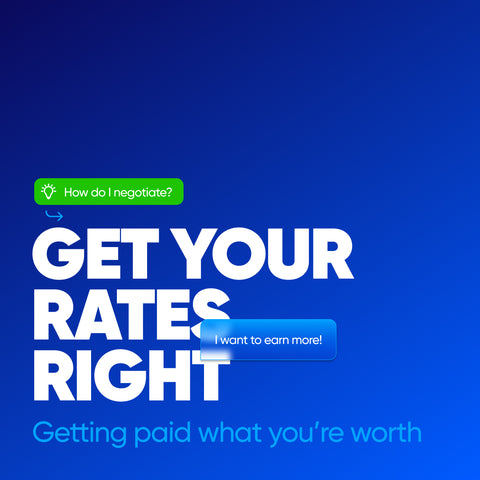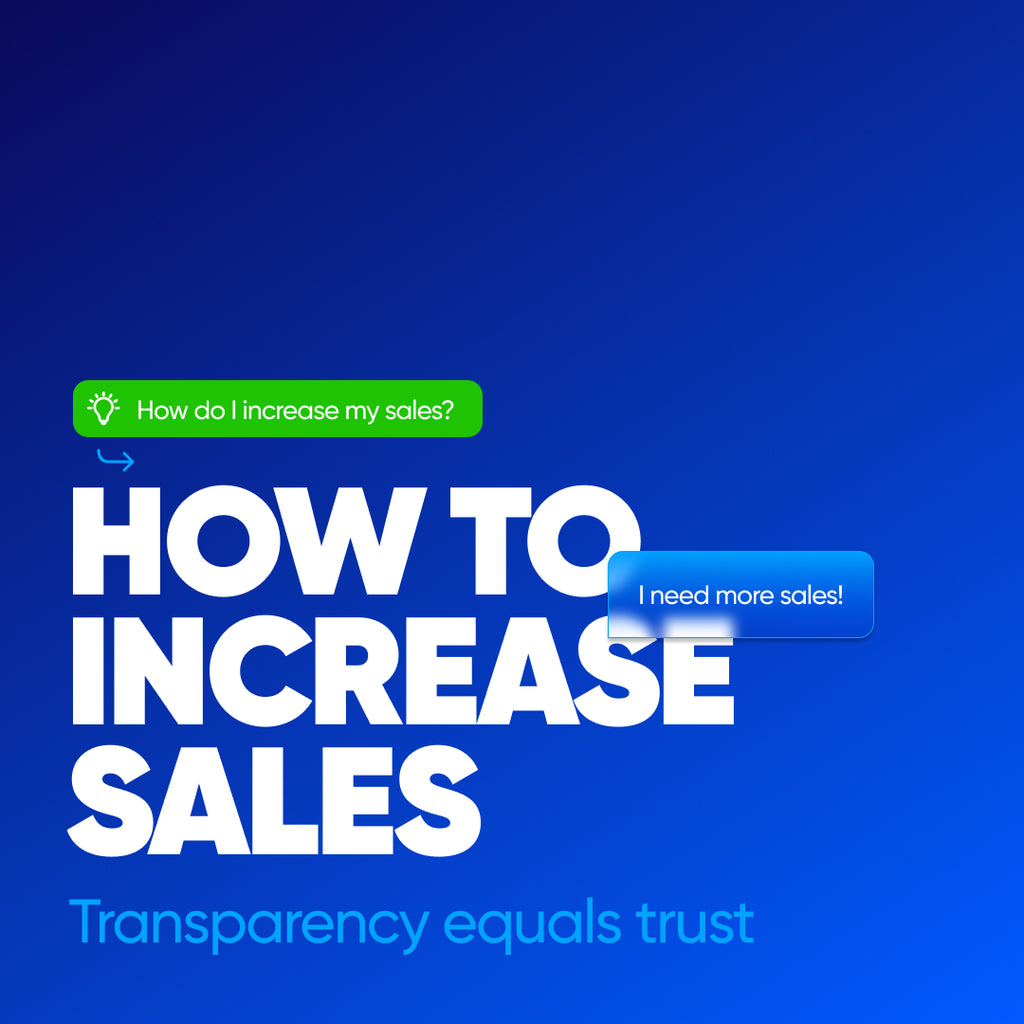Contents
Freelancing, in most ways, is an extremely empowering choice of career.
The Importance of Negotiating Your Rate as a Freelancer
Understanding Your Value as a Freelancer
Price negotiation: Tips for Preparation Before Negotiation
Tips for Effective Communication and Negotiation Skills
Negotiation tactics: Tips for Conducting the Negotiation Process
Building Long-Term Client Relationships
Freelancing, in most ways, is an extremely empowering choice of career.
It offers freedom and flexibility and the possibility to work on projects that are really interesting and engaging. I am a big advocate of freelancing—it is the very first thing I recommend to anyone looking to earn money online. The barriers to entry are very low, there is little qualification snobbery, and you can literally start earning money tomorrow.
If your goal is to bank big—that is, if you want to be earning a comfortable salary well into six figures—freelancing may have its limitations. There are two factors that limit how much money you can earn as a freelancer: the number of hours of work you can bill and the rate you charge.
In this post, we’ll focus on that second factor—the rate. More specifically, we’ll go through the best techniques you can use to get the highest possible rate from all of your clients.
Mastering the fine art of negotiation is absolutely essential. It’s not all about naming a number. More importantly, it’s confidently expressing your value and being able to back that up with experience and skill. For both new freelancers who are making their way into this industry and established pros, knowing how to negotiate will get you paid worth your value and hence be able to establish a fruitful freelance career. Having specific benefits and compensation details as a bargaining chip can significantly impact your final agreement.
The Importance of Negotiating Your Rate as a Freelancer
Negotiating over your rate is one of the most important things that will influence your career as a freelancer. This will directly affect your financial and professional growth.
One of the common approaches for most freelancers to get into the marketplace and acquire the first set of clients involves offering very low rates. As you accrue more experience, develop skills, and build your portfolio, you’ll have to raise your rates to match your increased worth accordingly.
First and foremost, be sure to realize the need to actually negotiate a rate. This whole thing is not about earning more but about being able to recognize and claim the proper worth for the efforts put in. Understanding what constitutes a fair price for your services is crucial in these negotiations. This ensures continued investment in skill development and better tools and resources that could be plowed back into improving your services. This helps in encouraging a positive feedback loop of benefits between you and your customers.
Effective negotiation also has a much broader impact on your career trajectory. Higher rates will very often weed out less serious prospects and get you those clients who value quality and pay for it. This may lead to more satisfying projects and, therefore, a stronger portfolio with critical better testimonials for long-term success.
Understanding Your Value as a Freelancer
Before you get into the process of rate negotiation, it’s important to know your worth. What this literally means is a close look at what, as a freelancer, you offer. Knowing your value will prepare you for the negotiation by standing firm with your rates since you know what your work is worth. Understanding your value also enhances your negotiating position, giving you the confidence to secure better offers. Let’s break down how you can understand your value better.
Know Your Worth
Knowing your worth is the freedom of the freelancer. Think about the skills that you have. They are what make you unique. Each skill you learned took time, effort, and experience to build. Whenever you do a job, you aren’t just doing something; you deliver a value that only you can.
So, in pricing, remember the hard work. Not just for its sake but to get paid what one deserves by putting in hard work. Your rate needs to reflect the experience and expertise brought to the table. If you receive an initial proposal that doesn't meet your expectations, consider making a counter offer to ensure your rate aligns with your worth.
Research the Market
Researching the market is knowing what people like you charge for services. Search for freelancers offering services that sound similar to yours, and note their rates. This will give you an idea of what clients are willing to pay.
Remember, though, that prices may fluctuate with experience, location, and the complexity of the work. Use that information to benchmark your prices and set your target price.
Define Your Unique Selling Proposition (USP)
Your USP is your secret weapon in any kind of negotiation. It is the reason clients should go with you instead of somebody else. Think about what you do best, then convey it clearly to your clients. A USP makes you noticeable in a crowded market, much the same way a bright hat would be at a party. It makes you easy to spot, and in freelancing, that is just about everything.
Price negotiation: Tips for Preparation Before Negotiation
The truth is, any successful negotiation requires some amount of prep work. You can’t get up and rush into the money conversation with clients. That means you need to know your numbers, show them your best work, and finally understand what others say about you.
By brainstorming creative solutions, you can identify opportunities for integrative negotiations that lead to mutually beneficial agreements.
Now, when you are prepared, you will feel strong and confident as you walk into those negotiations. Here is how you can prepare effectively.
Calculate Your Minimum Acceptable Rate (MAR) for a Fair Price
Your MAR is the minimum rate you would accept for any job. You must know this before you go into any negotiation. Calculate your MAR based on all your costs, such as living expenses, business overheads, and time to complete a job. The figure will let you know what to make to your bottom line, that amount you want to earn if you're to sustain the business and the lifestyle. Knowing what your MAR is gives you confidence to say no in case people offer rates that don't meet your needs, ensuring you do not underprice yourself.
Prepare Your Portfolio
Your portfolio is the showcase of your skill and accomplishment—it's how you prove what you can do to clients.
Pick projects that showcase your strengths and your versatility. Keep your portfolio up to date, easy to use, and full of testimonials, case studies, and examples of work that you want to attract.
A robust portfolio is an excellent tool in any negotiation—it's concrete proof of a job well done and the value delivered.
Collect Testimonials
Testimonials are statements from former clients that vouch for your expertise and professionalism, generally enhancing the credibility of your work and building trust with potential clients. Seek feedback from previous clients you have worked with regarding their experience in many different aspects of your service.
Display these testimonials right up front in your portfolio or on your website. They become powerful because they showcase that you are actually good at what you do—not just because you say it, but because others say so, too.
Testimonials can also tip the balance in your favor in any kind of negotiation by showing this social proof.
Tips for Effective Communication and Negotiation Skills
Effective communication is what will keep the freelance professional alive. It's what bridges you and your clients to one another, making sure that what is flowing from you to them and vice versa is clearly understood by both parties.
Here are some tips that would improve your communication skills during the negotiation process.
First Point of Contact
This first contact may set the tone of your relationship with your client. Introduce yourself and your services, and try to understand their needs. Bring some enthusiasm and professionalism into the interaction because first impressions can make all the difference in whether they want to work with you or not.
Be clear and concise in your message. State how you will help them achieve their aims and ask clarifying questions. This first exchange is your chance to build rapport with the client and prepare the stage for a successful negotiation.
Listening Skills
Listening is one of the greatest skills while negotiating with the client. One should listen to the client without any interruptions.
The respect is inbuilt, and it will help you understand their need and expectation. Through active listening, you will be able to tailor your services accordingly in trying to meet their specific requirements.
Knowing what's important to them allows you to deliver something which will meet or beat their expectations. It also helps to identify any concerns or objections they might have, and enables you to address these in advance.
Expressing Value
As you present your services, focus on clearly articulating your value. Describe how the work that you do will solve their problems or improve their projects with your unique skills and experience. Share examples from past work on how you have overcome similar challenges.
Once you can clearly articulate your value, potential clients will see why it's beneficial for them to invest in your services.
It's not about the price; it's about what return on investment they're going to get by hiring you. Make sure the client knows what tangible benefits they are going to gain with you as their freelancer.
Negotiation tactics: Tips for Conducting the Negotiation Process
Effective price negotiation is one of the most important negotiation skills for freelancers. This is not solely about getting the best rate possible but about arriving at a fair agreement that works well for both you and the client.
One effective approach is the hard bargaining tactic, where an offer is presented as nonnegotiable, similar to the 'take it or leave it' method often used in scenarios like car sales.
The following strategies will help in your negotiations.
Starting the Conversation
Establish confidence—state the rate and add a brief reasoning on why. It’s all about showing your passion for the project, then seamlessly plugging in what you’ll charge. You set a professional tone to start out the negotiation, similar to how you would handle a job offer—showing this is going to be a mutually beneficial relationship.
Getting the Budget from the Client
When possible, let the client go first in revealing their budget. That gives you an idea of what they are willing to pay for.
If the client's budget is suited to your expectations, then you can carry on with the negotiations; otherwise, if it is lower than expected, you can look into reducing the scope of the project or have alternative price packages that explain the value which you can bring with a fee that is higher.
Justification of Your Rate
If they question the rate, explain to them why it is such; you have got experience and are a knowledgeable person who can really bring results for other clients.
Providing evidence of your past successes reinforces your value and helps the client see that your rate is an investment in quality work. It is about demonstrating that he will get full value for money by hiring you.
Negotiating Terms and Conditions
Beyond the rate, negotiate the terms and conditions of the project. This would include deadlines, payment schedules, and any other additional services or revisions that may be required. Ensure that what is expected from both parties is very clear to avoid misunderstandings later.
Use Silence as a Tool
The power of silence in any negotiation cannot be understated. State your rate, then pause. Let the client respond because, more often than not, he will want to fill the void of the silence by agreeing to your rate or even compromising on a rate that best suits you.
This works because there is that moment of reflection by the client, so they will probably do one of the following: revisit their position or feel that the deal they are getting is good enough, and they will agree to your terms.
There could be the problem of discomfort from the silence, but it can also work in your favor to move the negotiation in your direction.
Be Open to Compromise
Stand firm with regard to your price, but be ready to give in where such would make sense to achieve a win-win outcome. For instance, it is possible to offer reduced scope of work or flexible payment terms when the client is unable to meet up with your rate. Compromise should be mutually beneficial and never undervalue your work.
If you do find a middle ground that will work for both parties, then you will probably secure a client grateful for your flexibility and professionalism. This can lead to a long-term relationship, repeat business, and referrals—some of the most valuable elements of building a successful freelance career.
Closing the Negotiation
Once you've reached an agreement on the cost, clearly summarize the terms so that both parties are on the same page. Follow up this communication by writing a formal contract detailing the rate, scope of work, deadlines, and payment terms.
A well-drafted contract not only benefits the professional but also spells out what is to be expected from the client, making the working relationship easier.
Thank the client for his or her time, and express your excitement about the project. A positive conclusion underlines all the professional rapport you have built up until now and sets the tone for collaboration moving forward.
Building Long-Term Client Relationships
Successful freelancing isn't about winning one-off projects; it's all about securing long-term relationships with clients. A client who trusts in your work will always return for more work, recommend you to others, and become an intrinsic part of your freelance business.
Deliver the Best Service
This is the base of a long-term relationship with any client: delivering good work on time, communicating, and being responsive to their needs. If clients see your dedication and professionalism, they are very likely to be repeat customers.
Bring solutions that will leave them astounded by their expectations or think of improvement upon which they haven't reflected. It's how you really raise your value in their eyes. This differentiates you from other freelancers and puts you into the category of trusted associate for success.
Stay in Touch
Keep in touch with your clients. Even after projects are finished, just an email checking up, or even sharing some news relevant to the industry, can be enough to pop you into their minds as the opportunity arises. That will nurture the relationship and keep it in mind as new projects come around.
Implement CRM or even a simple spreadsheet to track your clients and ensure that you keep in touch with them regularly. It really is such a small action that can have large returns as you continue to build your base of loyal clients.
Ask for Referrals and Testimonials
Don't be afraid to ask happy clients for referrals and testimonials. Word-of-mouth is perhaps the best ad in freelancing. A recommendation from one client to another carries so much more weight than any ad. Testimonials will act to provide social proof, showing others why they should hire you, too.
Be specific regarding projects or clients you're looking for when seeking referrals. This will help your clients make the best possible targeted recommendations, and it will increase the chances of getting new business.
A successful negotiation ability is an important skill for successful freelancers. Know your worth, prepare well, and take care in your communication; that way, you can negotiate rates, which will give you proper value.
In other words, successful negotiation is not just about the highest rate; it is about reaching a fair deal with mutual benefit that will birth long-term relationships with clients.
In time, mastering these negotiation strategies will increase your income and your professional reputation, thus making you one of the most sought-after freelancers in your chosen field. You can rely on Creatibly for tips that will take you from your first project to your hundredth, finding the right rate, and building a sustainable, rewarding freelance career.

Negotiation Tricks That Help You Get The Rate You Want




